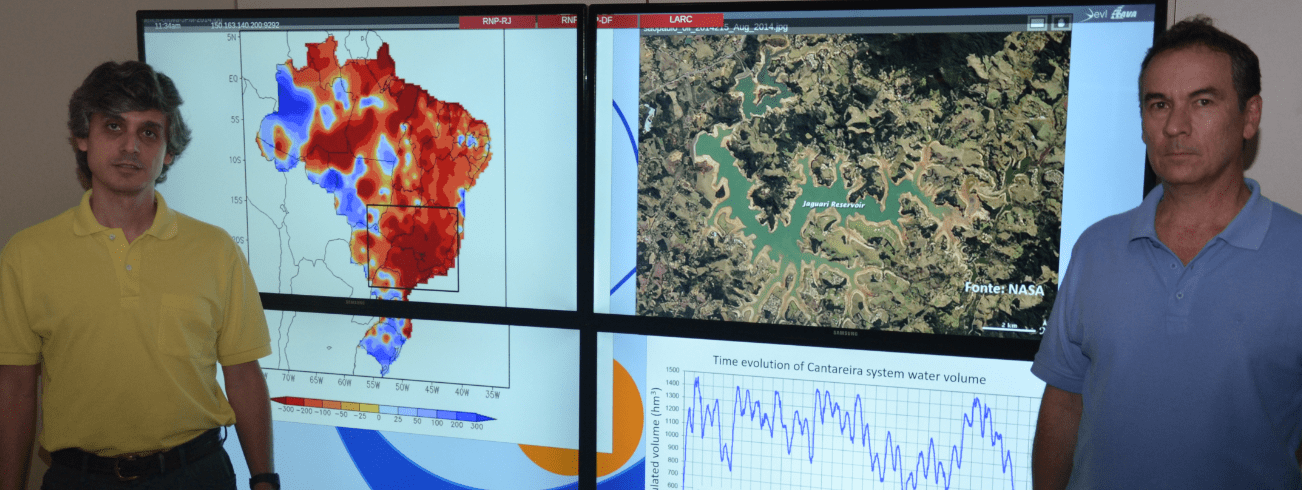
How does weather and climate research affect your routine?
Have you ever stopped to think about how weather and climate research influence your daily life?
“This science has a direct impact on the daily lives of us all, from small decisions, such as whether to bring a coat or an umbrella or not, to government analyses, such as whether there will be enough water in the reservoirs of the dams of the hydroelectric power plants to produce electricity”, says Caio Coelho, the Brazilian researcher of the Weather Forecast and Climatic Studies Center (in Portuguese, CPTEC), of the National Institute of Space Research (INPE).
“Another example of the usefulness of seasonal weather forecast is the planning of trips. Knowing, for instance, that the next month will be drier or more rainy than normal, we can decide on tourist destinations more appropriate for our personality, minimizing possible uncomfortable situations,” the expert adds.
A global numeric model
CPTEC is responsible for forecasting the weather and seasonal climate, for environmental forecasts (air quality) and for making projections of weather change scenarios in Brazil. And in order to view that summarized data on the weather forecast, indicating whether it will be sunny, rainy or overcast, there is a long way to go.
“Meteorological data from several regions of the world is used on a daily basis to initialize the CPTEC’s global numeric model, to generate the weather forecast for the next few days. Regional models are also run in supercomputer Tupã to provide a deeper level of detail for the weather forecast.
The meteorologists evaluate the forecasts produced by the numeric models, aggregate knowledge of the local and regional meteorological conditions, to then produce the weather forecast for the next few days for the whole of Brazil”, Caio explains.
Infrastructure running 24/7
It is nonstop work. “We maintain an IT infrastructure running 24/7”, CPTEC’s researcher and Information Technology expert Eugenio Almeida assures us. He explains that in addition to being connected to RNP, CPTEC has a strong interaction with the organization.
“Back in my day, the networks were low-speed, not reliable and became unavailable for a few days. With the connection to the academic network, we improved such scenario and the data transfer rate. We no longer need to leave CPTEC to interact with peers and are able to make the meteorological data available in an increasingly faster way, with the certainty that the other end will receive the information”, he states.
Thanks to the high-speed connection, the interaction with peers currently includes researchers from other countries, and even the general public.
“To name but one recent example of international collaboration, due to the water shortage occurring in the Southeastern region of Brazil, especially the metropolitan region of São Paulo, which drew the interest of the international scientific community, researchers from Europe, United States of America and Australia contacted CPTEC’s researchers to develop a study intended to detect possible human contributions able to change the climatic risk for the occurrence of draught conditions like the ones observed in 2014 and 2015.”
Voluntary network of personal computers
By analyzing observation data and global climatic model rounds, this group of researchers found no evidence of change to the climatic risk of draught due to human activities responsible for the emission of greenhouse gases, and concluded that the population increase and water consumption were quite likely the main factors responsible for the water shortage in São Paulo during the period, Caio explained.
“An interesting aspect of such study was the use of a voluntary network of personal computers called climateprediction.net, for the conduction of thousands of weather simulations, which allows the public interested in this matter to contribute to the making of the research.”
Thus, the Internet connection through the academic network has an important role in the sending and receiving of a large volume of data.
“The benefits of being connected to the Ipê network are several, both from a scientific viewpoint of quick exchange of information for the advancement of science, and from the practical viewpoint of helping the government with the provision of weather information for the creation of public policies.” Caio Coelho concludes.
For more information please contact our contributor(s):

